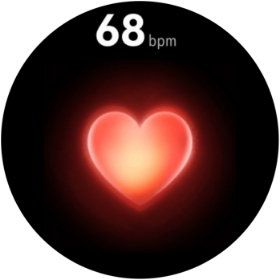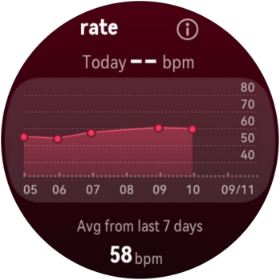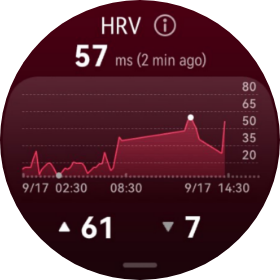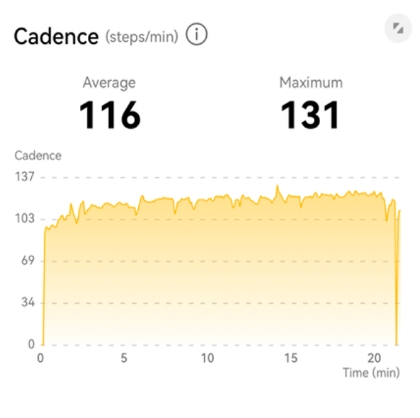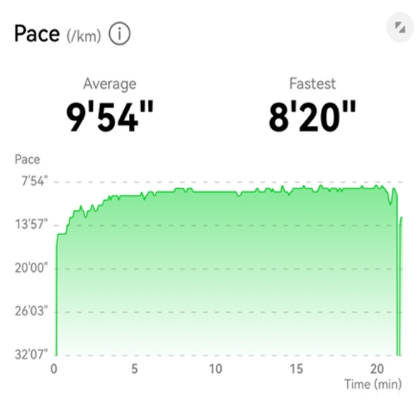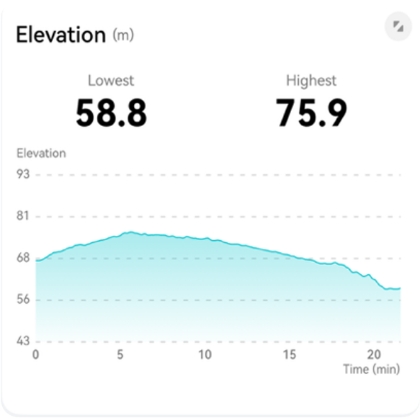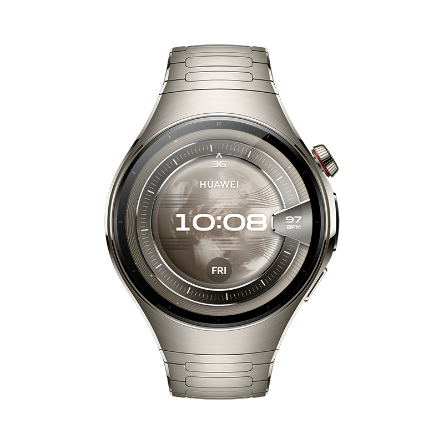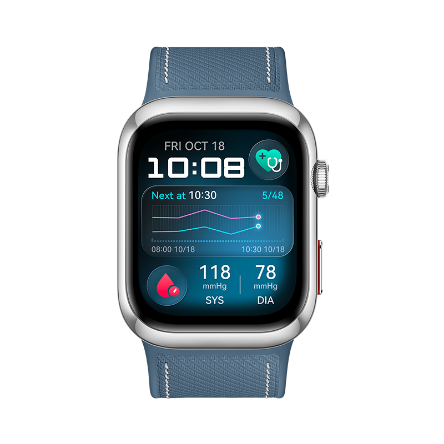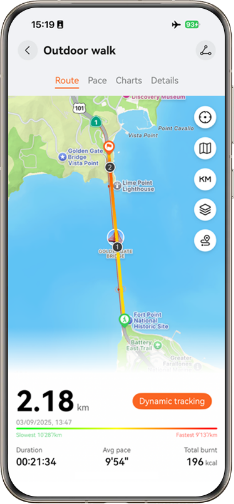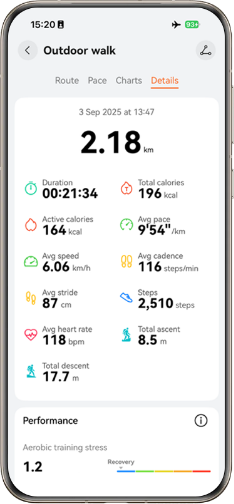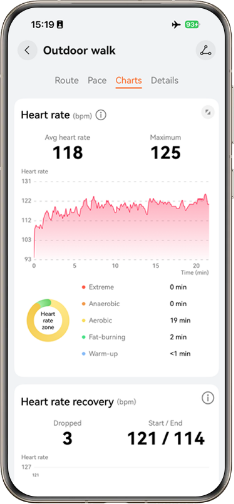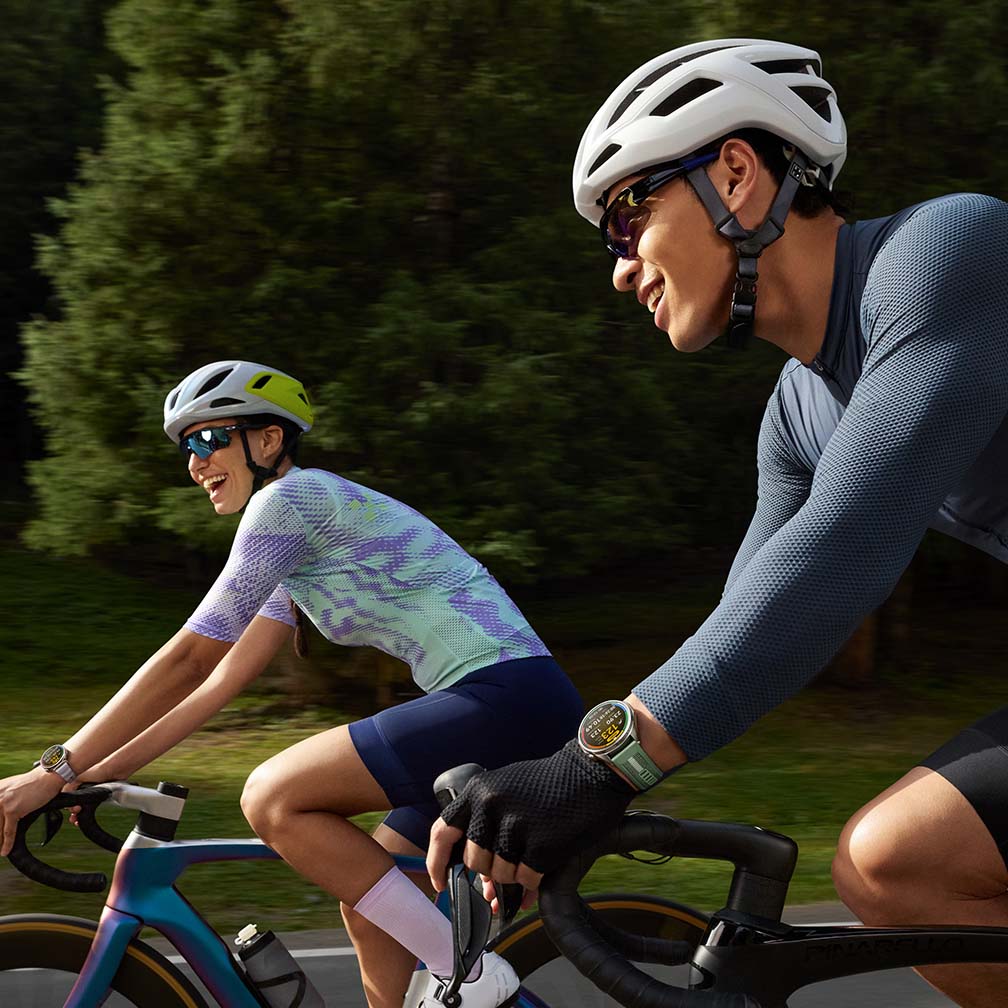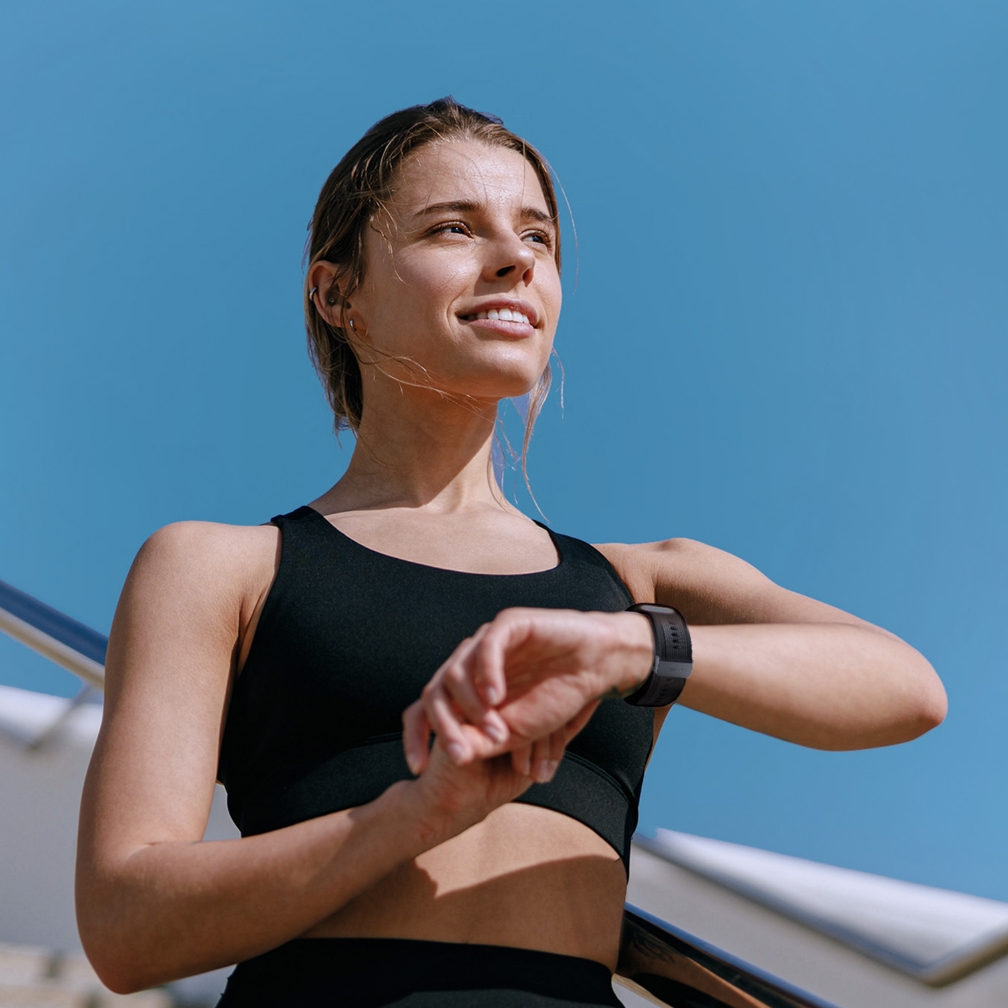Turning Numbers Into Progress: Making the Most of Smartwatch Metrics
Written by Christopher James
Turning Numbers Into Progress: Making the Most of Smartwatch Metrics
12 min readPublished on 28/09/2025 · 08:10

We are living in an era where there is a new way of managing health. No longer are we confined to physically visiting hospitals or clinics to interact with specialists and their specialized equipment. In this new age, this digital age, data is king!
In this article
01. Introduction
02. Understanding the Core Metrics
03. The Value of Metrics in Sports
04. Practical Applications – How I Use the HUAWEI WATCH GT 6 Pro
05. Conclusion – Smartwatch and Data as a Long-Term Companion
01
Introduction
With more and more digital healthcare products being made available to the consumer, many of
which being integrated into our phones, watches and other wearables, managing our own health
- extending now into managing our own well-being - has become much easier, giving us the
power and convenience to assess all aspects of our core health.
Of course, this extends well into the well-being sector - where we are not only interested
in keeping our health conditions on-track, but rather where we practice “prevention” through
exercise.
Two things are at the core of allowing this to happen - wearability and unobtrusiveness -
both of these characteristics influence just how well we use these devices and just how
effective the data generated is managing our health and well-being. Smartwatches fit this
bill perfectly - easy to wear, light-weight, and robust- plus they are now bristling with
built-in sensors that measure a myriad of health/ performance factors unobtrusively.

The HUAWEI WATCH GT 6 Pro is an example of just this - a watch that doesn’t just tell the time: it is lightweight, quite robust, has amazing battery life and has all of the types of sensors we are getting used to now to give us a running commentary of the various parameters important to our daily health and wellbeing - and more than that, to give us quick information of crucial parameters when we are pushing the envelope at some major sporting event … or when we are simple out for a healthy long walk!

Figure 1: Heart rate, HRV and oxygen saturation – all values within the healthy range, measured with the HUAWEI Watch GT6 Pro.
Of note are the monitoring of heart rate, blood oxygenation (SPO2), electrocardiography (ECG) and then heart rate variability (HRV) - as well as the step counts, and related energy expenditures we have come to expect from these devices. Heart rate - and especially ECG and HRV - used to be reserved for specialist environments, but now these are literally at our wrists. More than that - the data that these generate is not only accurate for a non-clinical device, but it is plentiful and rich. For example, heart rate along with rate of outdoor exercise to give us a snapshot of just how much energy is being expended - or using heart rate to assess warm-up or down routines.
Good to know
HRV is a metric that used to be available only to the likes of cardiac units or research
labs -
it is the measure of the differences in heart rate over time, this variability is an important
qualifier of aspects such as stress in everyday life. Carefully tracking HRV allows for not only
improving cardiovascular well-being but also in tracking and influencing mental health.
The ECG is a direct measure of the electrical activity generated by the beating heart
-this
measurement tells us many things about cardiovascular health. The ECG is more than just heart
rate, we can figure out issues related to irregular or accelerated heart beats, as well as other
perhaps subtler issues related to cardiovascular well-being.
The mix of sensors, compactness, ease of use and raw power makes this watch a powerful contender
for anyone who is looking to keep track of their wellbeing and their health improvement regimes
- be it through gentle exercise, outdoor activities or even extreme sports. In particular this
watch combines a good mix of a large screen, with quite a lightweight frame and extremely
durable battery life up to 21 days. This watch offers a slimmer build than the HUAWEI WATCH 5
and whilst I am totally in awe of the blood pressure measuring capabilities of the HUAWEI WATCH D2, this watch
offers longer battery life with a bigger screen
to boot!
02
Understanding the Core Metrics
What is interesting with all of these measures - especially when considering sports - is the contextual information that accompanies these measurements. For instance, are these metrics related to a brisk outdoor walk or an endurance run? What are the distances travelled and what was the terrain like? Was there a warmup/ down period? HUAWEI smartwatches not only contextualizes the data but it also provides meaningful real-time prompts to you the user - which apart from being mere data, is quite motivational, telling you not only your heart rate - for example - but combined with your step cadence and terrain how this is impacting your “energy burn”
Figure 2: Key outdoor metrics at a glance: cadence (steps per minute) shows how efficiently you move, pace (time per kilometer) reflects your speed, and elevation (altitude changes) tracks the terrain’s impact on your performance. Measured with the HUAWEI WATCH GT 6 Pro.
Here I show an example of an outdoor walk where I walked across San Francisco’s beautiful Golden Gate Bridge - using the Outdoor Walk Workout mode - it provided a raft of information - where I strove to keep my heart rate in the aerobic zone.


Accurate GPS and Heart Rate for Advanced Sports
Up to 21-Day Battery Life no more battery anxiety for outdoor sports
Pro-level Cycling Tracking with Virtual Cycling Power
Sapphire Glass Titanium Alloy
I have now been given the opportunity to test a watch from the HUAWEI WATCH, GT and D series. I found it quite interesting how watches from these series cater to the needs of different types of people. Users who use the HUAWEI WATCH D2 are mature, and likely engaged in their health through the cuff-based blood pressure monitor. The HUAWEI WATCH 5, clearly appeals more to career-oriented people who have higher levels of stress in their day-to-day lives, and can get a quick overview of their health conditions through the X-TAP sensor and Health Glance. Finally, the HUAWEI WATCH GT 6 Pro that I most recently tested is the all-rounder, with a specific focus on extended sports functionalities.
This newest addition to the GT series carries a significant upgrade for cyclists – with a power meter, cycling enthusiasts can now even obtain FTP values from the watch. Multiple workout modes such as skiing, trail running and golfing offer a lot to active people. Wearable health technology has evolved to an extent that anyone can benefit from the right smartwatch – it’s simply a matter of selecting the most suitable one for yourself.
03
The Value of Metrics in Sports
You might ask yourself why all of this matters. As a scientist, I may be biased, but I
believe that everything we do generates useful data. In the past, much of it went unmeasured
– I would even say wasted. Today, smart wearables make it possible to capture this
information with unobtrusive devices, turning it into meaningful insights.
This is especially valuable when the data is linked to exercise and sport, where it can help
us better understand performance, health, and progress. With data we can observe progress -
progress towards an anticipated goal. If weight loss is your goal, step counts and energy
expenditure bear a direct correlation to your weight-loss goal. Smartwatches us to “close
the loop” - we push ourselves, our body responds, the watch measures our “outputs”, and, in
the case of all HUAWEI smartwatches I have tested, gives us an interpretation of those
outputs and we can see where we stand with respect to our end goals.
This gamification of activities makes the data the powerful currency in achieving our end
goals. Without knowing it, this makes our actions more measured, more scientific, no longer
relying on guesswork but using hard fact to inform our literal next steps.
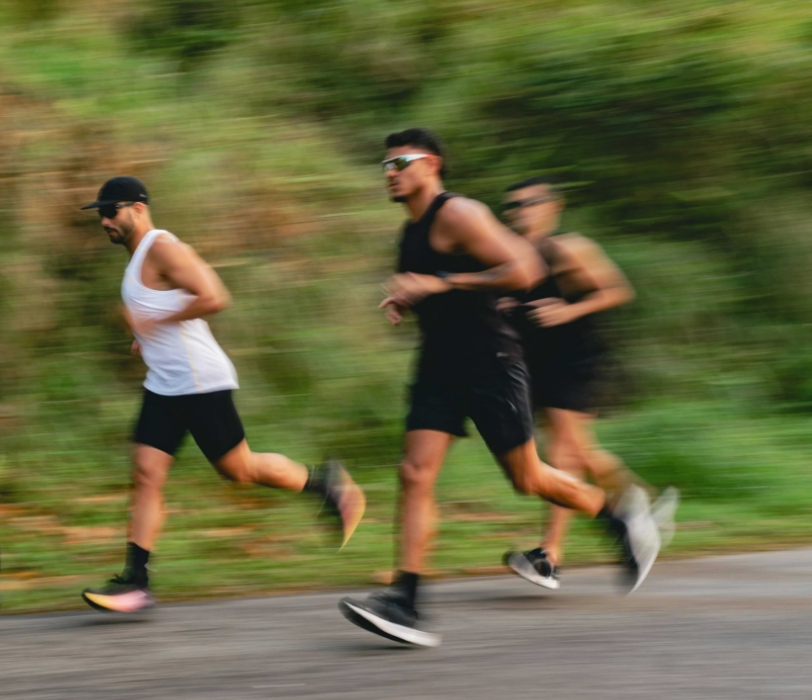
Figure 3: Analysis of an outdoor walk: 2.18 km in 21 minutes, with an average pace of 9’54”/km, cadence of 116 steps/min, and stride length of 87 cm. Elevation data shows 8.5 m ascent and 17.7 m descent, while heart rate stayed mostly in the aerobic zone. Measured with the HUAWEI WATCH GT 6 Pro.
As a busy academic, I find great enjoyment in exercising outdoors through walks to distance myself from my office days. This HUAWEI WATCH GT 6 Pro allows me to quantify the exact value of my exercise and the gains I can expect to make, it provides that sense of achievement and thus even when at a conference - such as my recent trip to San Francisco - I can measure the benefit of my exercise as well as of course feeling it. Also, as someone who needs to keep on top of my hypertension I benefit from the daily blood pressure measurements I get from my HUAWEI WATCH D2- which I now have spanning close to a year.

The HRV data provided
by the HUAWEI WATCH GT 6 Pro provides a good overall assessment of
health
and wellbeing –
balancing cardiac health with stress and general well-being.
04
Practical Applications – How I Use the HUAWEI WATCH GT 6 Pro
I see the use of the HUAWEI WATCH GT 6 Pro fitting best into a combination of monitoring
healthy workout sessions and occasional glimpses of general health and well-being.
By this I mean that I regularly use the ECG feature to assess a healthy heart – a good
resting heart rate in sinus rhythm, I also regularly assess my sleep based on the sleep
scores the watch. Personally, I look for uniformity as much as I can. I am now entering into
the habit of “formally” recording my Outdoor Walks as “workouts” – more than just counting
steps and calories burnt. It provides a gentle nudge to keep going and makes my steps count.
It also gives me a record of my achievements, something to compare against and observe
improvements over time. Just as we enjoy seeing the weight drop as we diet and exercise,
it’s good to measure distances walked, energy expended, and heart rates, both during
activity and in recovery. This gives a healthy balance of managing “wellness”, as well as
managing well-being.

It is always important to note that these watches are first and foremost consumer devices and no medical/clinical devices. So, whilst they may not necessarily have the same level of accuracy as a clinical device what is important is the consistency of the measurements that the watch provides. Algorithms play a part in the robustness of smartwatches like the HUAWEI WATCH GT 6 Pro and, once again, it is this abundance of data that is at the heart of these measures. Finally, when it comes down to it, when used in an exercise setting, it is precisely this robustness and consistency of the measurements – coupled with the “nudges” that they provide that make them so convenient as a training tool.

To extract meaningful
information from data you need an abundance of good quality measures: The
HUAWEI WATCH GT 6 Pro
provides this with the HR, HRV and ECG it provides in addition to its exercise program.
05
Conclusion – Smartwatch and Data as a Long-Term Companion
In summary, I think the value of data in our daily lives cannot be undersold. If our intended end goals are improved well-being, with smartwatches such as the HUAWEI WATCH GT 6 Pro, we have a rich set of data right at our fingertips - quite literally. This data, coupled with some knowledge of our intended end goals, allows us to carefully map out our progress - tracking vital parameters when it counts. Be it HRV, ECG or just plain heart rate we can make sure that our efforts are going in the right direction - equally though we can ensure we are being safe in own endeavours. We are not all super athletes, with our busy lives it is hard to find the time to do what is right to keep ourselves fit and healthy, but remembering how I started this article - the power of our own health and wellbeing lies within ourselves, smartwatches such as these empower us and allow us to meet these end goals - and all of this through the power of data.

The Author of this Article is Prof. Christopher James. The views expressed are his own.
The information is to be used as general information only, and is not to be taken as advice with
respect to any individual situation and cannot be relied upon as such. A healthcare provider
should be consulted when attempting to diagnose a condition or when determining the best course
of action for any health-related concern.
Users should exercise in a safe and suitable manner which is commensurate to their own exercise
capabilities and limits.
The HUAWEI WATCH D2 and the ECG feature are intended to be used by people
aged
18 years and
over, but are not intended to replace any medical diagnosis or treatment. Data obtained during
the use of this device and feature is for personal reference only. Before using the device,
please carefully read the Quick Start Guide, Wearing Guide, and Instruction for Use. Due to
national restrictions on obtaining approval / registration as a medical device, the HUAWEI WATCH D2 will only be available in selected European markets, and
the
ECG feature only works on
watches and smartphones purchased in countries where the service is available.
Supported smartphones: Mobile phones with Android 6.0 or compatibles, HarmonyOS 2.0 or
compatibles, or iOS 12.0 or compatibles. The Huawei Health app version on your mobile phone must
be 11.0 or compatibles. Please make sure that your wearable device and phone are running the
latest versions before using ECG.
The heart rate, HRV, stress monitoring and sleep monitoring features are not a medical device,
and therefore its monitoring data and results are for reference only and should not be used as a
basis for medical diagnosis or treatment.
References
1. James, C. (2015):Longer term monitoring through wearables brings with it the promise of
predicting the onset of disease – moving from managing illness to maintaining
wellness.
2. Herzog, T. (2022):Mental Health
and
Heart Rate Variability.
Read more
Explore
Copied








